Are you looking to enhance your supplier diversity initiatives? Collaborating with diverse suppliers not only fosters inclusivity but also drives innovation and strengthens your supply chain. Embracing this initiative opens doors to unique perspectives and business opportunities that can benefit everyone involved. Join us as we dive deeper into the strategies and benefits of a successful supplier diversity collaborationâread more to explore how we can work together!

Clear objectives and goals
Supplier diversity initiatives aim to enhance economic opportunities for underrepresented businesses, fostering an inclusive supply chain. Clear objectives include increasing procurement spending with minority-owned, women-owned, and other diverse suppliers by 20% over the next fiscal year. Goals involve establishing partnerships with at least five new diverse suppliers within the first six months and facilitating quarterly workshops to educate internal teams about the benefits of supplier diversity. Additionally, tracking progress through a monthly dashboard will ensure accountability and provide insights into spending patterns, ultimately promoting a more equitable business ecosystem.
Supplier eligibility criteria
Supplier diversity initiatives focus on fostering inclusive procurement practices by engaging with a broad range of suppliers from diverse backgrounds. Eligibility criteria often include factors such as certification from recognized organizations (e.g., National Minority Supplier Development Council, Women's Business Enterprise National Council), attributes such as ownership (minimum 51% ownership by minority, women, or other underrepresented groups), and company size thresholds (e.g., small businesses as defined by the Small Business Administration with revenue under $7.5 million). Geographic presence is also essential, generally requiring operation within specific regions or states. Additional requirements may encompass compliance with industry standards and regulations, financial stability through recent financial statements, and a proven track record of quality and on-time delivery, ensuring the supplier can meet the organization's operational demands.
Benefits and opportunities offered
Supplier diversity initiatives foster economic inclusion and create opportunities for various businesses, particularly small, minority-owned, women-owned, and veteran-owned enterprises. These programs aim to increase competition and innovation while ensuring a diverse supply chain that reflects the community's demographics. Companies can benefit from enhanced brand reputation through commitment to corporate social responsibility. Engaging with diverse suppliers can lead to improved access to niche markets, resulting in higher customer loyalty and increased market share. Additionally, collaboration with these suppliers can unveil fresh ideas and solutions, driving innovation and efficiency within the supply chain. Furthermore, organizations participating in supplier diversity often experience positive financial performance, as studies indicate a correlation between diversity in supplier base and overall business growth, making it a strategic advantage in today's competitive marketplace.
Contact information for questions
Supplier diversity initiatives promote inclusivity and economic equity within procurement processes, allowing businesses to engage with a broader range of vendors, including minority-owned, women-owned, and veteran-owned enterprises. Contact information for inquiries related to such initiatives is crucial for facilitating effective communication and collaboration. Typically, organizations provide an email address, such as supplier.diversity@companyname.com, and a dedicated phone line, like (123) 456-7890, to address questions from potential partners and suppliers. This ensures transparency and fosters relationships that can enhance strategic vendor diversity goals, drive innovation, and improve supply chain resilience.
Timeline for engagement and feedback
In a supplier diversity initiative, establishing a clear timeline for engagement and feedback is essential for effective collaboration. Initial outreach to potential diverse suppliers may occur in Q1 2024, aiming for the identification and onboarding of at least 15 new suppliers from underrepresented groups such as women-owned, minority-owned, and LGBTQ+-owned businesses. A kick-off meeting scheduled for mid-February will introduce key stakeholders from both sides, outlining expectations and objectives. During Q2, regular bi-weekly check-ins will facilitate ongoing communication, allowing for real-time feedback on supplier performance and integration challenges. By the end of Q3, a comprehensive assessment of supplier contributions and challenges will take place, leading to a strategic review meeting in October to refine goals for the 2025 fiscal year. Final feedback and recommendations will be documented in a report set for distribution in early November, ensuring that all insights are captured for continuous improvement.
Letter Template For Supplier Diversity Initiative Collaboration Samples
Letter template of Collaborative Opportunity in Supplier Diversity Efforts
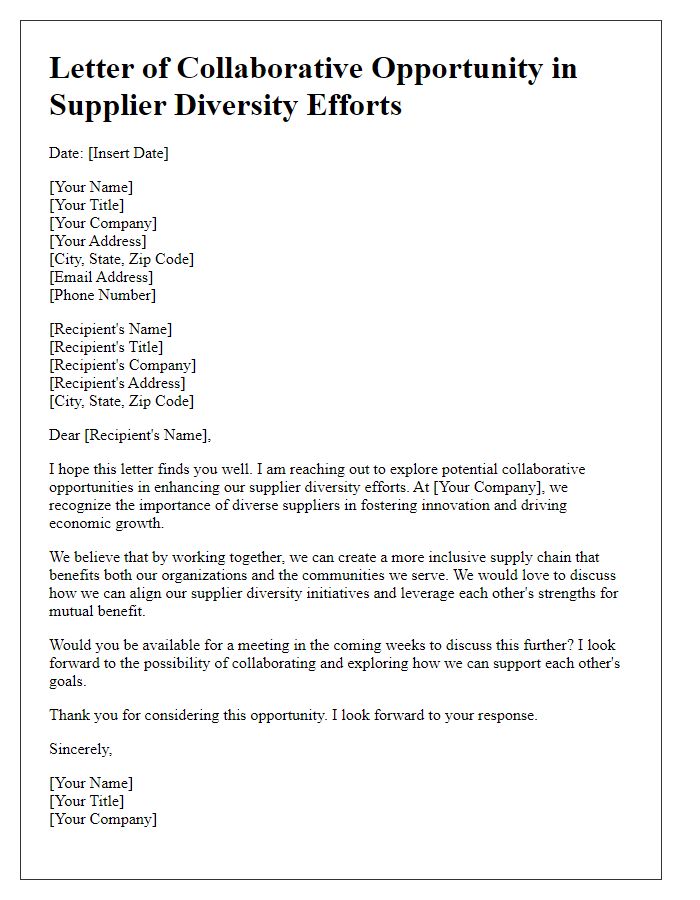
Letter template of Invitation to Collaborate on Supplier Diversity Goals
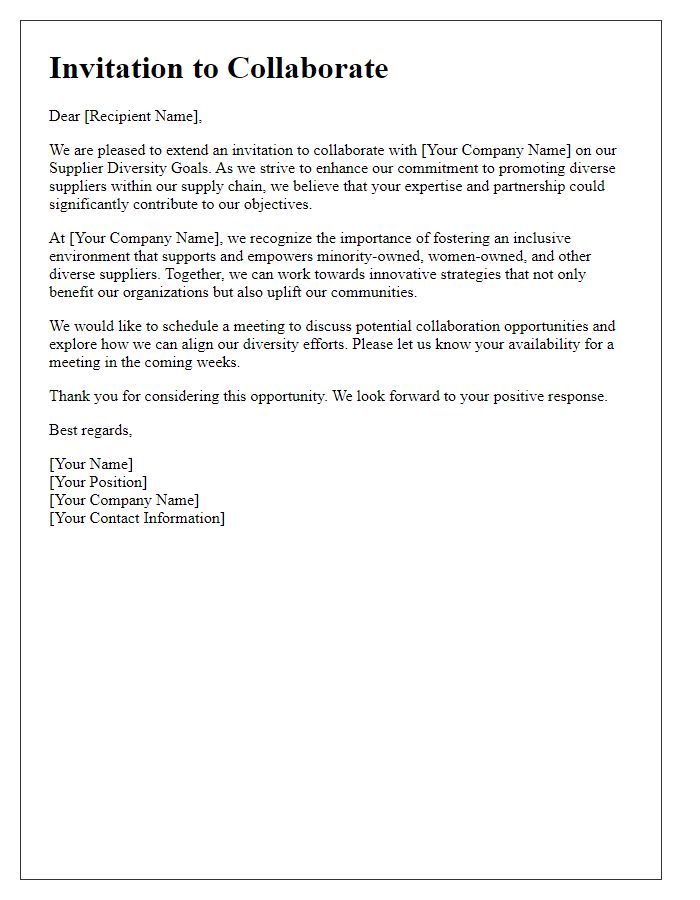
Letter template of Proposal for Supplier Diversity Initiative Participation
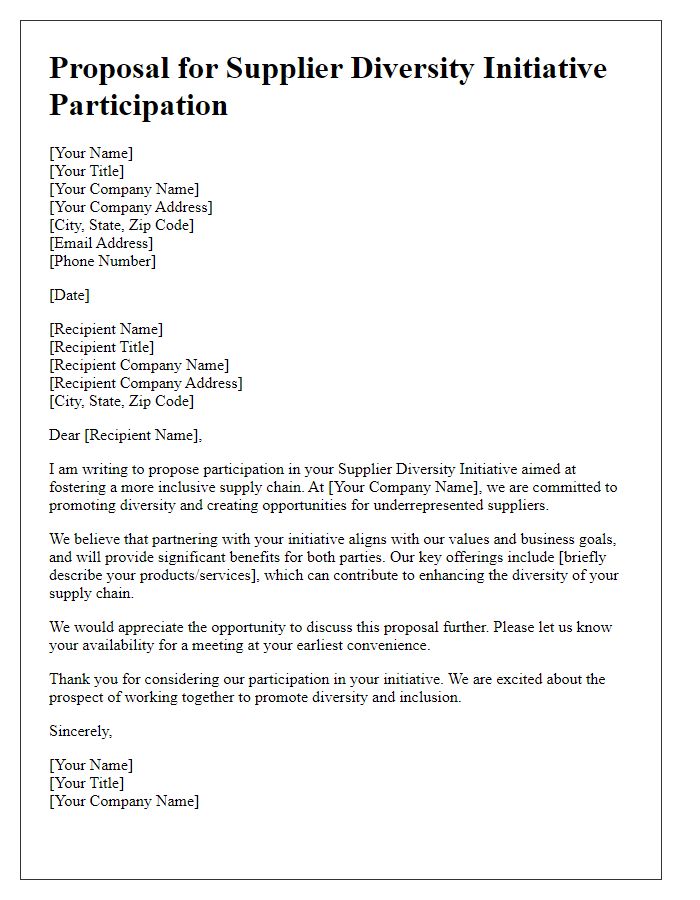
Letter template of Strategic Collaboration for Supplier Diversity Enhancement
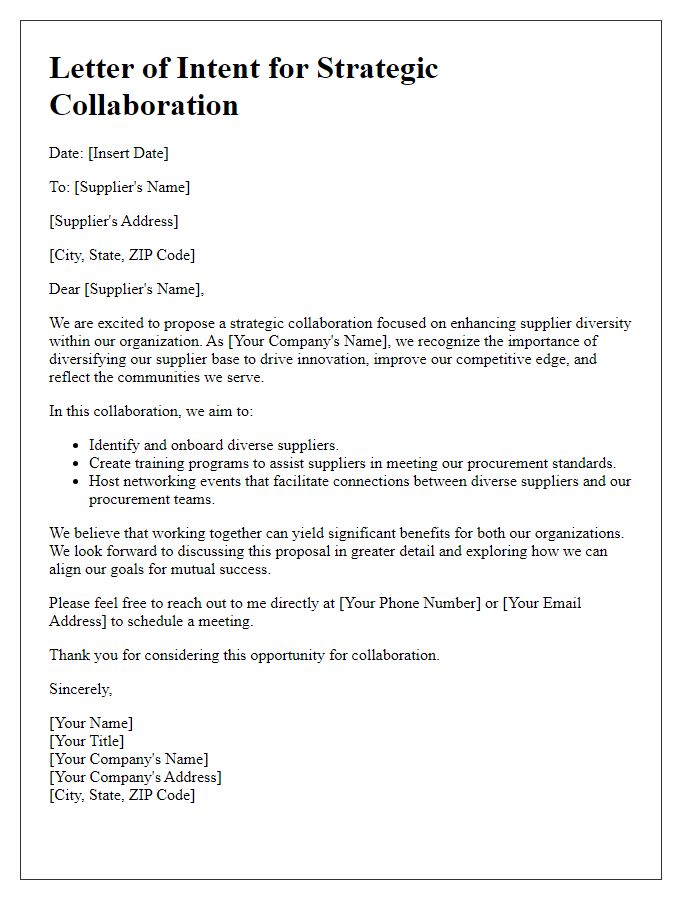
Letter template of Request for Partnership in Supplier Diversity Initiatives
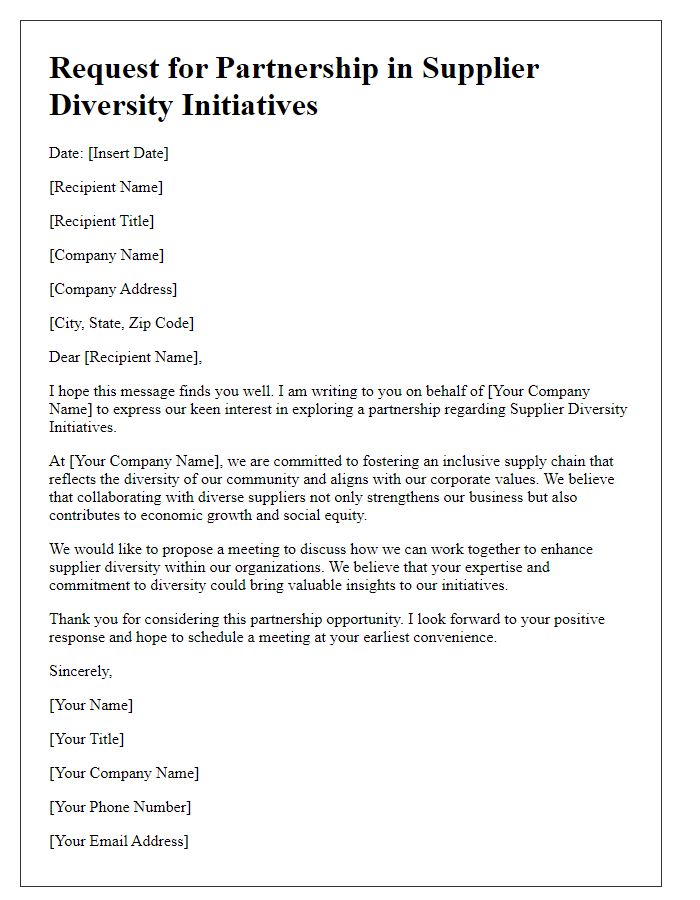

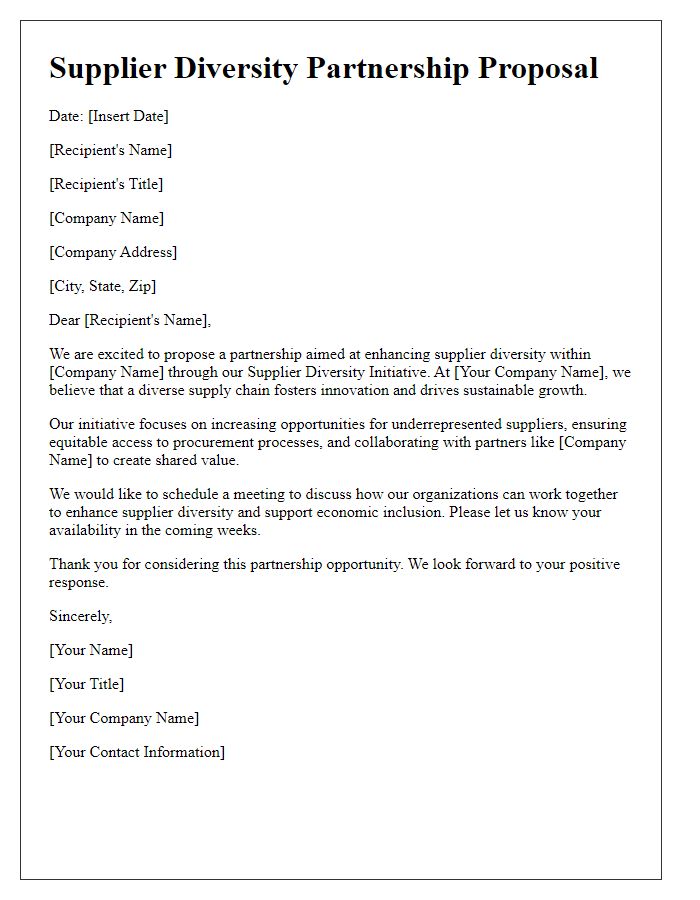
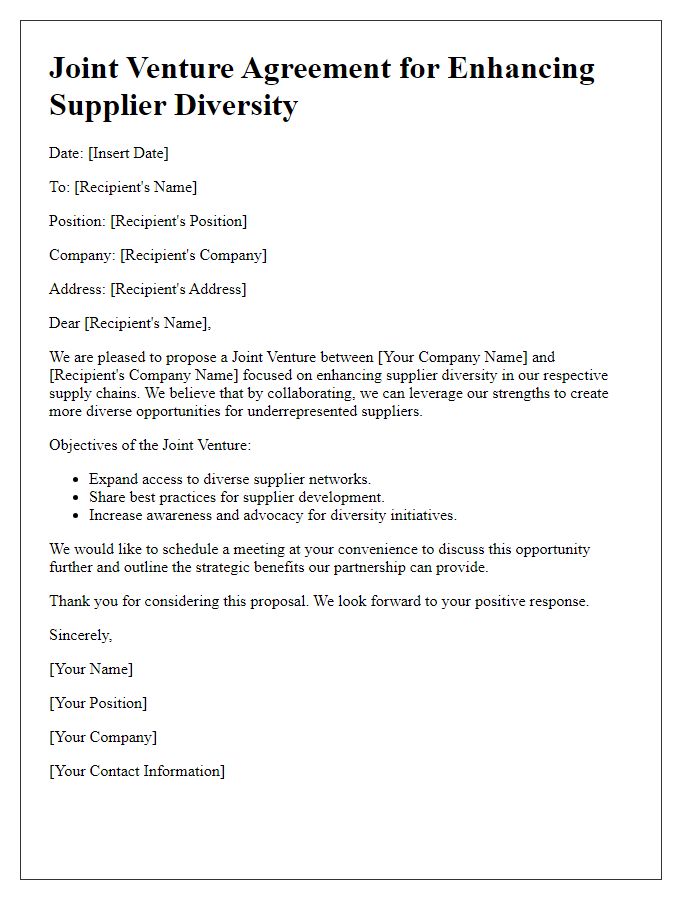
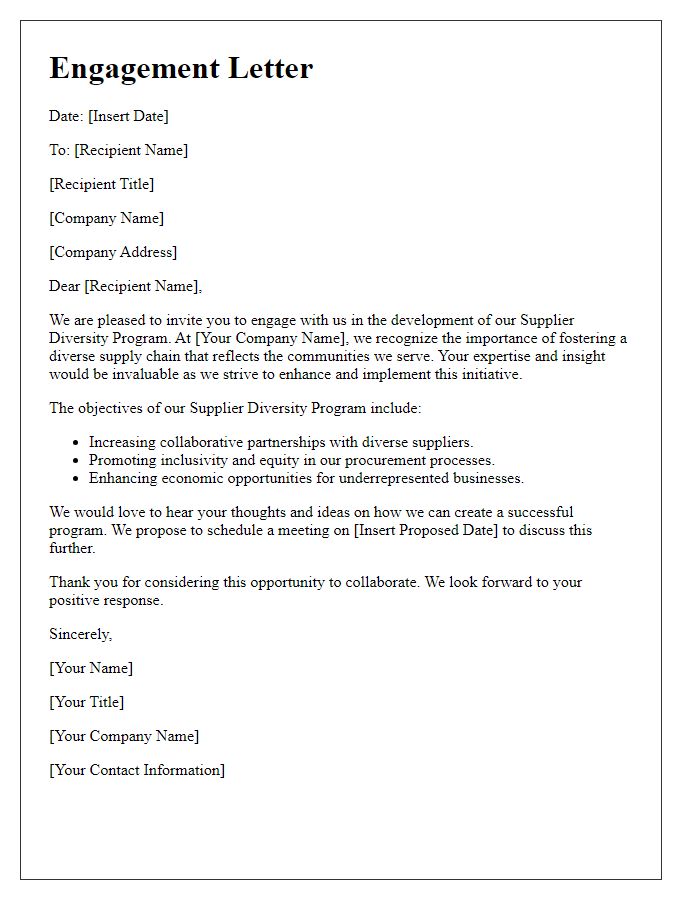
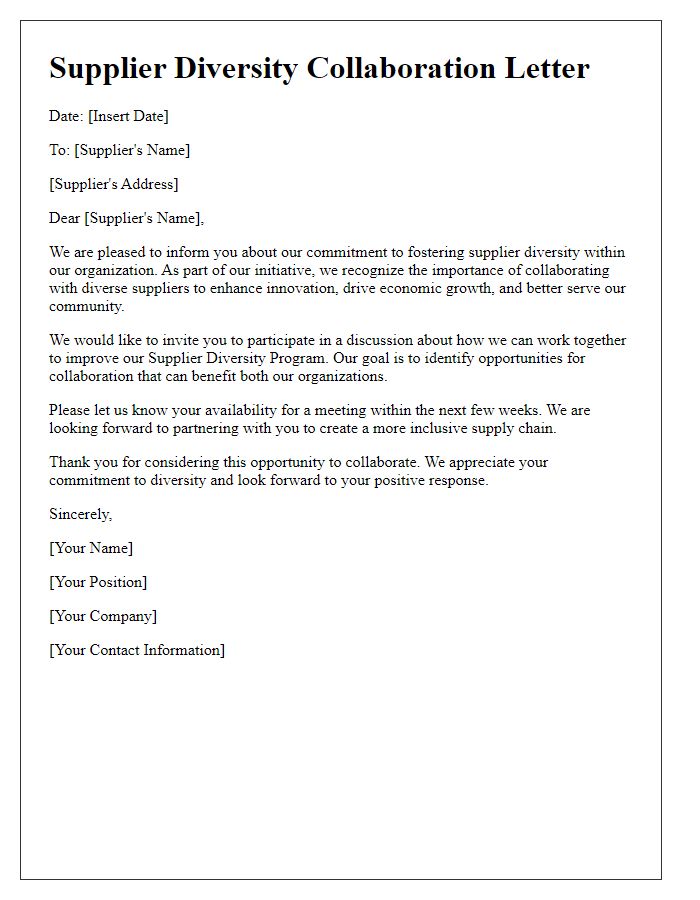
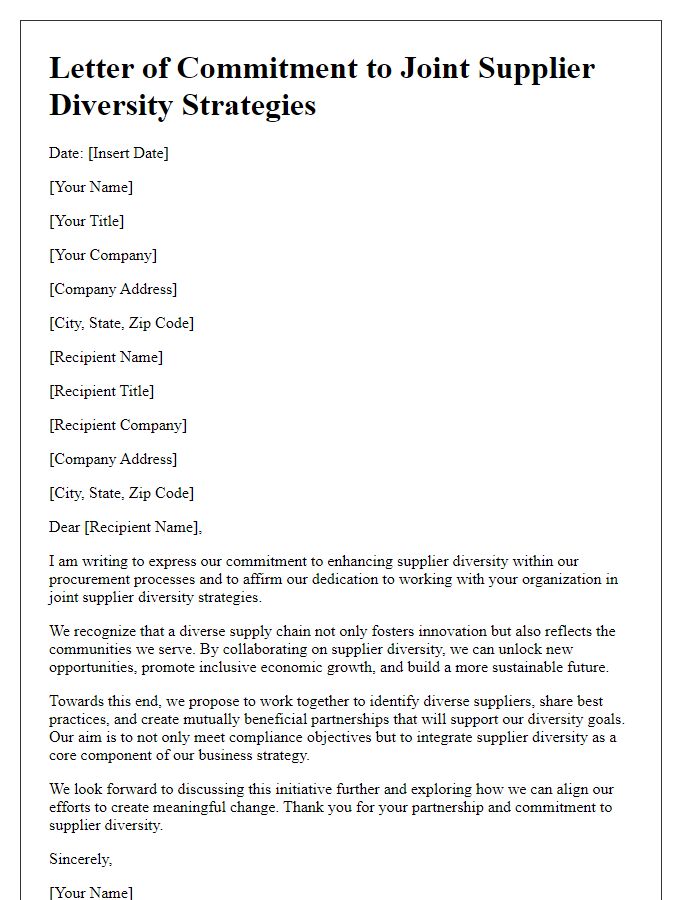


Comments